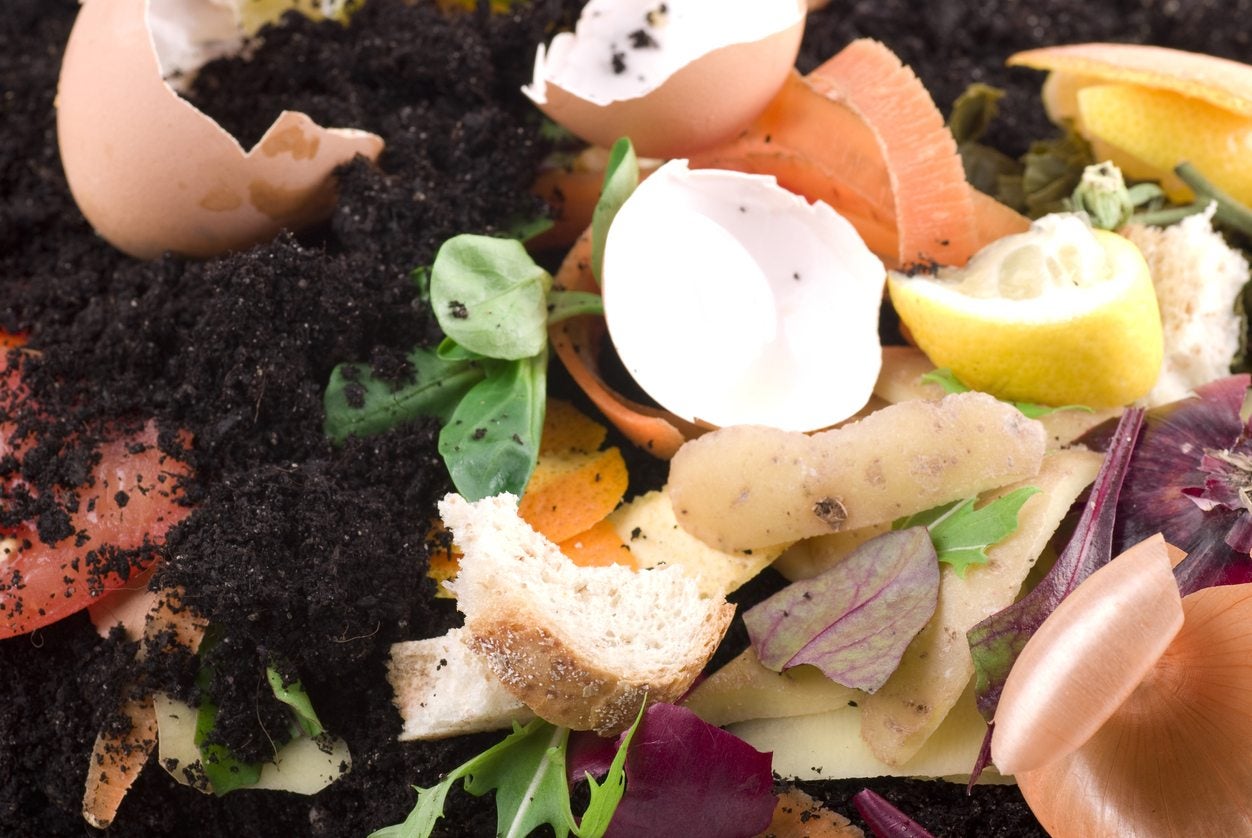Composting Fruit And Vegetable Waste – Should You Cut Up Compost Scraps

Sign up for the Gardening Know How newsletter today and receive a free copy of our e-book "How to Grow Delicious Tomatoes".
You are now subscribed
Your newsletter sign-up was successful
Should you cut up compost scraps? Shredding scraps for composting is a common practice, but you may have wondered if this practice is necessary or even effective. To find the answer, let’s look at the biology of compost.
Composting Fruit and Vegetable Waste
You add plant material, such as food scraps, garden waste, and lawn clippings, to the compost pile. Small invertebrate animals like earthworms, millipedes, sow bugs, and beetle grubs feed on the plant material, breaking it down into smaller pieces and increasing its surface area. The greater surface area allows microbes, including bacteria and fungi, to access more of the organic material in the scraps and eventually break them down into finished compost. Meanwhile, predatory invertebrates like centipedes and spiders feed on the first group of invertebrates and contribute to the rich biology of the compost. Will composting fruit and vegetable waste into smaller portions beforehand make any difference to this naturally occurring process though?
Does Cutting Scraps Help Compost?
The answer to this question is yes, but it’s not required. Cutting up scraps will help your compost break down faster by increasing the surface area of the compostable material. It will also help break up resistant materials like peels and shells. This allows microbes to access the decomposable material in the scraps and get to work faster. However, even if you don’t shred scraps, the worms, millipedes, snails, and other plant material-feeding invertebrates in your compost pile will shred them for you by consuming them and breaking them down into smaller pieces. The pile will compost with time anyway. On the other hand, it is important to break up large, hard-to-compost materials like sticks and wood mulch into smaller pieces to help them break down faster. Wood can take years to break down on its own, making it unlikely that large pieces will compost and be ready to use at the same time as the rest of the compost pile. When composting fruit and vegetable waste, shredding or grinding is less important, and it’s certainly not essential. It can help your compost pile break down faster, providing you with finished compost that will be ready to use in your garden sooner. It can also lead to a finer-textured finished product that may be easier to incorporate into your garden. If you do cut up scraps before adding them to the compost pile, be sure to turn the pile often. A compost pile consisting of smaller pieces will be more compact, so there will be less airflow within the pile, and it will benefit from the extra aeration when you turn it over.
Sign up for the Gardening Know How newsletter today and receive a free copy of our e-book "How to Grow Delicious Tomatoes".
Ilana Goldowitz Jimenez is a scientific and agricultural writer with a B.S. in Plant Sciences from Cornell University and a PhD in Chemical Biology and Infectious Disease from Harvard University.